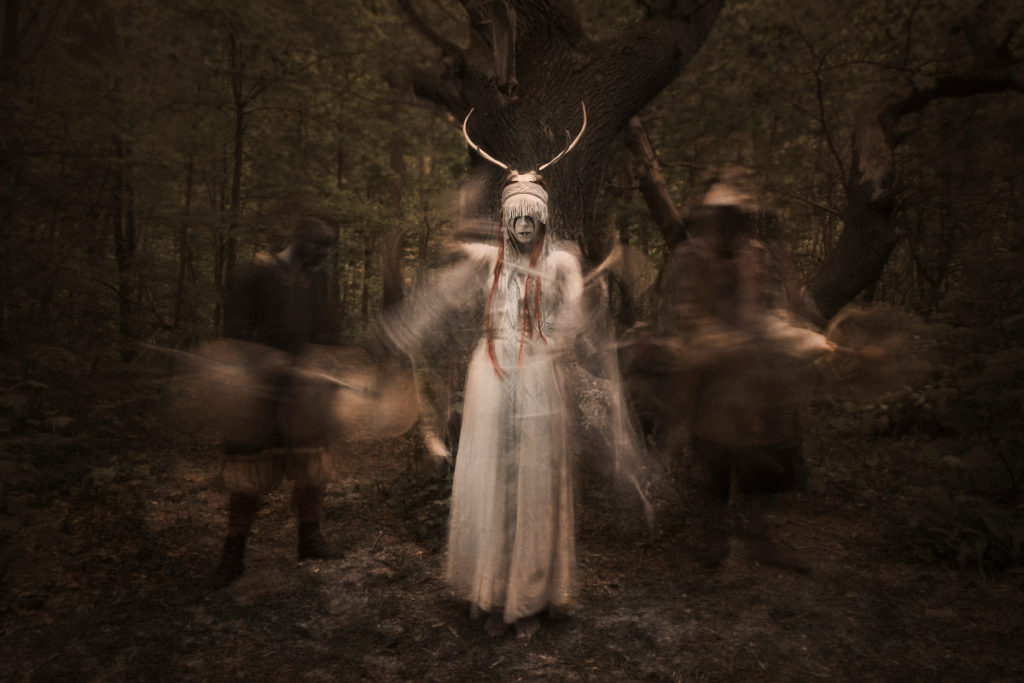European “amplified history” group Heilung’s new album Futha feels like a triumphant march into the past that we can never truly separate from ourselves in the first place. The remnants of that story serve as foundation for our present lives. The richly textured, intense Futha encapsulates some of our most primal, inescapable instincts drawn from these stories, turning them into a world that we can step into, complete with even some moments in which the group have reconstructed raw sounds of long-ago battle. These sounds run alongside what in the context of the record seem to be creations reflecting sounds of labor at the end of a pregnancy. In other words — the group go unforgettably far in implementing the immersive qualities to their music.
They use mostly very natural implements, although they do acknowledge even in their self-designated “genre” that they’re operating with the help of modern technology like amplifiers. Still, their band and sound are filled out with earthy drum tones, swirling melodic beats produced from other implements that aren’t necessarily “drums,” and even the repurposing of their voices into something that rather than just telling the story, personifies the story, adding with their varying raw and smooth vocals a personal level to the throughouly rattling reckoning with our nature contained within the songs of Futha. There’s not a single English word on the record, but the bluntly complex personality contained in its soundscapes ensures that a careful listener will not get lost.
The construction of the overall lengthy album, which is the group’s second, packs a strong narrative sense. Heilung begin their latest work with some raw but ultimately straightforward elements, including an isolated voiceover right at the very beginning and slowly growing music following that. Gradually, the group’s creation gets more and more intense, circling back through ever more cacophonous, complex reflections of the band’s vision not just of the past but of that “past’s” continued relevance and persistence. Eventually, the music thunders into the almost fifteen minute-long closing track “Hamrer Hippyer,” which closes on an ethereal note, unifying the raw sonic intensity that repeatedly emerged at other points in Futha with a vision of focusing that power into a human force.
Although Futha is ultimately “about” the distant past on paper, in reality, the album reflects ourselves situated right here in the present day. This music illustrates and amplifies the true limits of our nature, pushing us into the ether of some of our ties to the harried surface level not proving as eternal as they might first appear after all.
5/5 Stars
Photo via Jill Weitmann Decome
The full album is available June 28 via Season of Mist. Listen to some below.
You may also like
-
Diana Kurz at Lincoln Glenn in New York: A Review of a Shining Art Exhibition
-
Dustin Hodges at 15 Orient in New York City: An Ensnaring Exhibition at an Exciting Gallery
-
Maren Hassinger at Susan Inglett Gallery in New York: Reviewing an Uplifting Art Exhibition
-
Enzo Shalom at Bortolami in New York City: Reviewing an Entrancing Exhibition of Paintings
-
“Ben Werther: Townworld” at Amanita in New York City: Reviewing a Richly Memorable Art Exhibition
